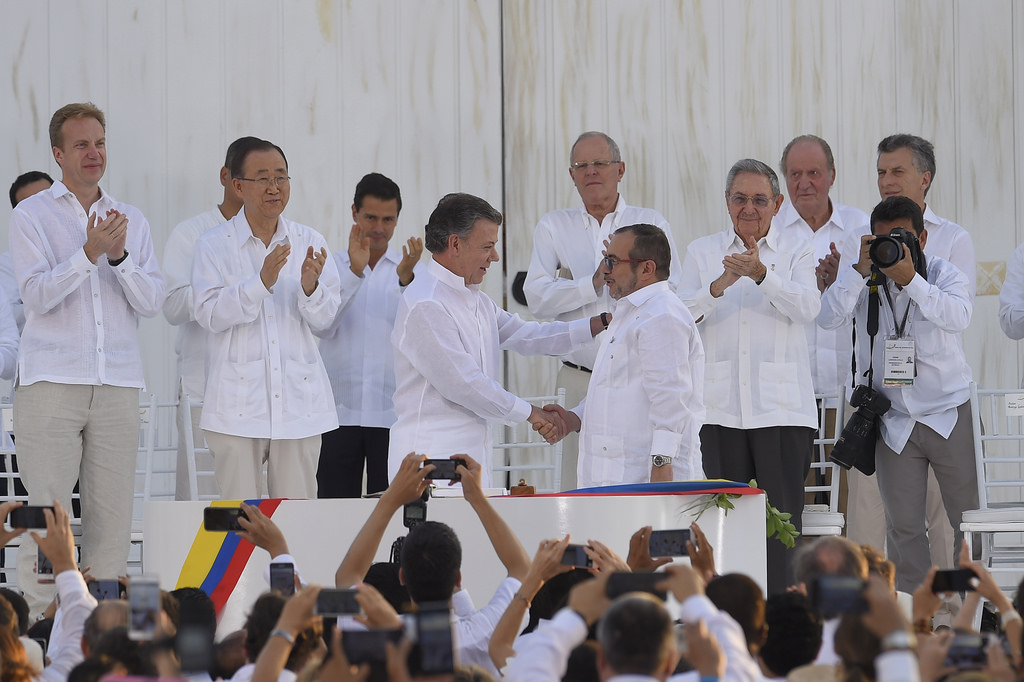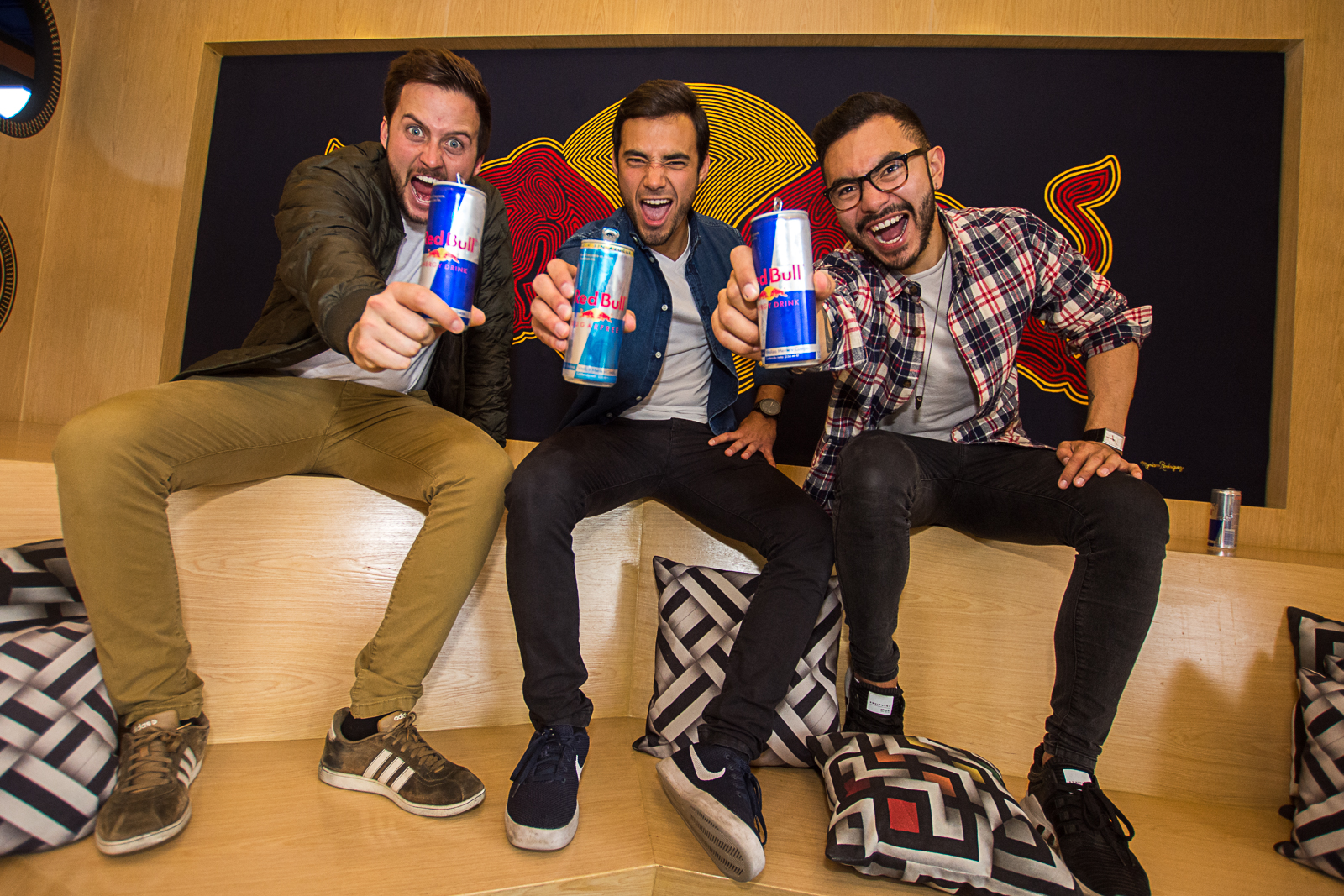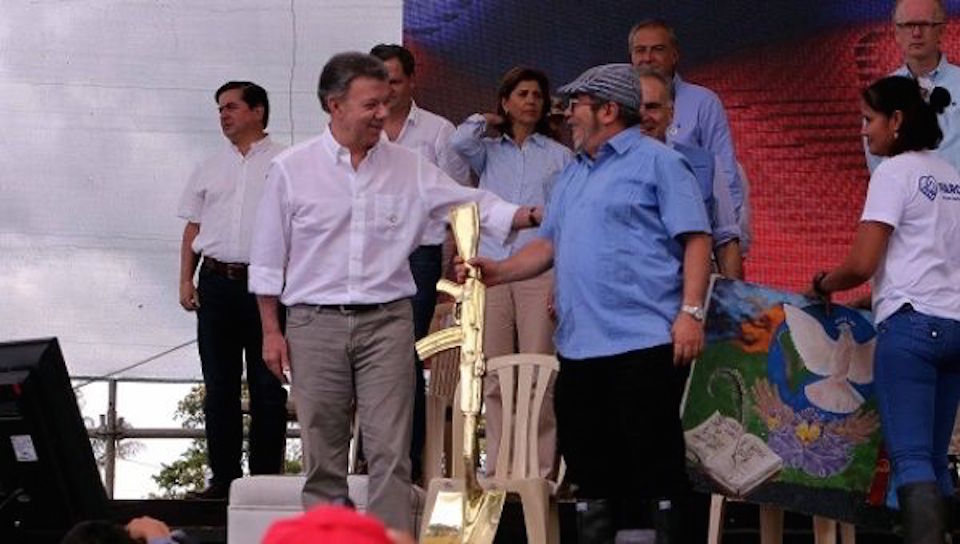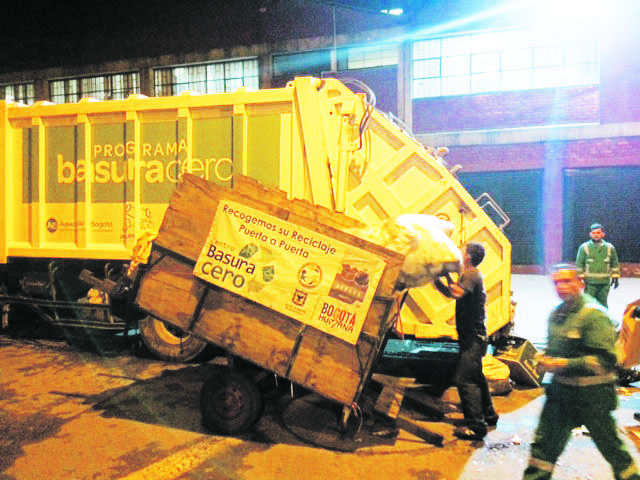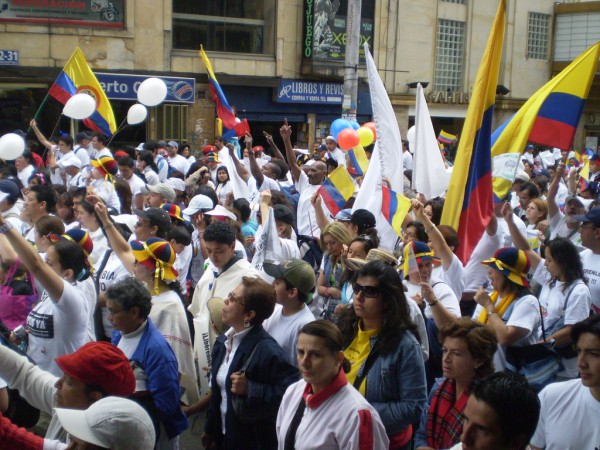
2014 has been a year of change in Colombia with steps made forward towards a lasting peace.
Gwen Burnyeat and Andrei Gómez-Suárez, of NGO Rodeemos el Dialogo, look back on a significant year in the FARC-government peace negotiations
2014 has been an eventful year for the Colombian peace process. In May 2014, the government and the FARC nego- tiating teams, who have been in peace talks since November 2012, reached a third agreement on the five-point agenda: on how to tackle the problem of drug-trafficking. Both sides agreed to work together to wipe out drug production in Colombia if and when a final peace deal is reached.
Added to the agreements reached during 2013, on agrarian reform and political participation in terms of peace processes around the world, this is extraordinarily rapid progress.
In June 2014, the issue of peace was increasingly politicised, and President Juan Manuel Santos won a second mandate by the skin of his teeth, with his promise to bring the negotiations to good term as soon as possible. Many sectors of Colombian society – across the left-right political spectrum – joined forces to vote for him.
While some criticised the President for using the peace process to win votes, the frenzy of the electoral process put the issue squarely into the centre of the national agenda, and united sectors of civil society, who would play a crucial role in the implementation of the peace agreement, when it’s signed.
After the elections, the negotiating teams initiated discussions on the issue of victims’ rights. In the past, a frequent criticism from victims’ organisations had been the lack of their direct participation in the talks.
So this time around, the parties decided to change tactic and involve these organisations, and send five delegations of 12 victims to visit Havana and give their testimony and proposals to the negotiators. These delegations, four of which have been carried out to date, have included victims of all armed actors and of a range of crimes, including forced displacement, kidnapping, sexual violence and ‘false positives’.
The direct participation of victims has helped put a human face to the suffering inflicted on the Colombian population, especially in rural areas, during the five-decade-long armed conflict. However, some staunch critics of the peace process have used the issue of victim participation to deepen the polarisation of Colombian society by reinforcing a dangerous dichotomy between victims of the guerrilla versus victims of the state.
With these issues creating a roadblock on the road to peace, civil society has an even more important role to play. Some Colombians, and friends of Colombia in England and Colombia have recently joined forces to “rodear el diálogo,” which roughly translates to: rally around the dialogue. The idea is to create spaces where ordinary Colombians from different walks of life, social stratas, professions and political orientations can come together to update themselves on the developments in Havana, and foster a culture of dialogue which is essential for making peace.
This year, in Bogota, 18 “Peace Breakfasts” have been organised, where people not only learn from experts about the negotiations, but also express their doubts and hopes, listen to others, and learn that in a democracy, differences should be a strength, not a reason to kill each other. Ultimately, building a strong peaceful democracy will require an active citizenship, that is willing and capable of interacting with state institutions to create legitimacy and implement the different elements of a peace agreement.
However, in spite of the progress made so far, in November, the negotiations stalled due to the capture of Army Gen- eral Ruben Dario Alzate by the FARC in the Chocó region. Civil society, ReD included, protested in Bogotá, calling on the government to return to the negotiating table. Two weeks later, the General was freed, and FARC negotiator, Pastor Alape, travelled in person to oversee his release, and to talk to him in person, which is a sure sign of maturity.
The peace process is an inspiration for many Colombians and friends of Colombia who live here, who are now discovering the power of dialogue and the importance of empowering themselves as active citizens. Ultimately, the FARC and the government must find a way to end the conflict, and peace must be built at all levels of society.
By Gwen Burnyeat (Universidad Nacional) and Andrei Gómez-Suárez (University of Oxford, Universidad de Los Andes), members of Rodeemos el Diálogo (ReD), a transnational, non-partisan civil society of Colombians, and friends of Colombia in the UK and Colombia, who aim to support a negotiated solution to the armed conflict, and create a culture of dialogue for the construction of peace in society.
Twitter: RodeemosDialogo
Facebook: Rodeemos el Diálogo
Be sure to take a look at the full list of our end of year perspectives here

